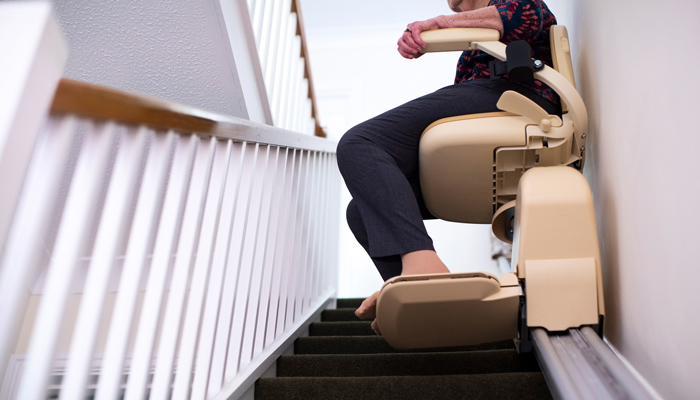CQC Inspections And Delivering Quality Care
During the third episode of our Caring Together podcast, Carolyn Baker-Mellor, Trading Director at Towergate Insurance Brokers, spoke with Dan Bridges, Senior Commissioning Manager at Avery Healthcare, to discuss CQC inspections and how to deliver quality care.
If you haven’t had a chance to listen to the podcast yet, you can do so here.
What is the CQC?
As you will likely be aware, the CQC is short for the Care Quality Commission. They are the independent regulator of all health and social care services in England, including hospitals, dentists, care homes, ambulances, clinics, homecare agencies, and more.
What does the CQC do?
The CQC monitors, inspects and regulates services and grades them according to a 4-point rating scale:
- Outstanding – Exceptional service
- Good – Good service that meets expectations
- Requires improvement – Not providing the service it should. CQC have highlighted areas of improvement
- Inadequate – Bad service. CQC have taken enforcement action against the provider.
How do I improve our care home’s CQC rating?
If your care home was rated below ‘good’, there are things you can do to try to change this. Dan Bridges explains, “When I’ve turned around homes that are rated ‘inadequate’ in the past, you can normally improve this pretty quick with good visibility of leadership, good quality structure and you sustain it and evidence it.” Carolyn Baker-Mellor concurred that, from an insurer standpoint, evidence is everything.
“It’s about evidencing the impact we have on people’s lives.”
Ensure you have the right evidence and data being gathered without it being excessive. Ask yourself what you need this information for and speak to your insurer to see what information they’d recommend you gather too. At this point, you will get a clear picture of whether your insurer understands the sector fully as they will either be able to assist you with this or they will not be able to tell you what you should be monitoring in your care home.
How do the CQC inspections impact my insurance?
One of the things insurers look for is CQC ratings, which they take very seriously as these can accurately depict the quality of care at your care home. However, Bridges highlights there are a few things that insurers should be mindful of when it comes to CQC ratings:
- Not every inspector inspects in the same way.
- The rating is only as good as the day that the inspector visited.
- A new care home can take several years to get their first inspection.
These factors can have a huge impact on a care home both financially and from an insurance point of view. If you can’t get a rating, it means both insurers and potential residents aren’t going to want to work with you. Many insurers only want care homes that rank ‘good’ or ‘outstanding’.
I manage multiple sites. How do I maintain the same quality consistently across each site?
Bridges explains that to ensure that you are delivering the same quality of care across all your sites, you need to have good visibility of leadership. For managers responsible for multiple sites, it’s important that you visit all sites regularly both to support the individual onsite management teams and to check that quality is sustained. When doing do walk rounds at Avery Healthcare, we conduct a thorough auditing process and really examine the information we collect to see what we can learn from.
“You’ve got to be present. You’ve got to be there to support. You’ve got to be there to guide.”
Bridges continues, “It’s also important to foster a trusting relationship between you and your team. We’re all human. We’re not perfect. You want your team to know that they can come to you if something goes wrong and you’re not going to be shouted at but rather we’ll work together to come up with a solution.”
“From a leadership perspective, I always say to build a strong team. You must see someone else's strength as a complement to your weakness and not as opposition because we don't know everything. Use the knowledge that you've got within your team. Use those skills and work together as it delivers much, much better outcomes.”
Good leadership is one of the five things that the CQC looks at during inspection. That’s why it’s important to ensure that the necessary information is communicated to the whole team, because when the CQC inspector visits, they won’t just speak to the manager; they might want to talk to a carer or housekeeper, so it’s important that everyone has this knowledge.
You should also be mindful that not everyone learns in the same way. Some prefer visual aids, others prefer reading, auditory, kinesthetic, etc. As a leader, you must be able to adapt your teaching style to suit the needs of the individuals in your team to ensure messages are communicated properly – ultimately, to ensure you provide the best quality care for your residents.
How do I ensure my team delivers quality care?
Ensuring your team delivers quality care comes down to the people you employ. Bridges reveals, “You cannot teach somebody to care. I always say that they’ve either got the attitude, the drive, the passion to want to make a change [or they don’t]. We can teach you how to move/handle residents or how to get a health and social care qualification but what we need from you is that passion to be able to do it.”
“You can teach somebody a qualification, but you cannot teach someone to genuinely care.”
Dan believes that finding someone with the right values (i.e. honesty, respect, accountability) and a caring nature is at the heart of delivering quality care. Look for ways to incorporate your care homes values into your recruitment package so that you get the right candidates applying for the job.
Once you’ve successfully recruited the right candidates, the focus then shifts to retention. In the care sector, it’s important for both parties to be flexible. Some people may struggle to work 12-hour shifts while others may have childcare or professional development considerations. Accommodating your staff’s individual requirements is worth doing, with Bridges emphasising that this makes staff feel valued. “In the days that [staff] are here, they’ll probably deliver outstanding care,” Bridges says, “because you’ve done everything that you can to ensure that their home life is catered for.”
Bridges continues, “People don’t typically leave bad businesses; they leave poor management. So, if you feel valued, if you feel that your manager is approachable, if you feel that you'll be listened to, and things will be acted on – what a great environment to work in.”
Don’t be afraid to give us a call
If you have any questions about this article, or want to know how we can assist you, contact Towergate today at newcare@towergate.co.uk or 0330 123 5154.
This article is for general awareness on the given topics and any decisions about policy coverage should only be made through discussion with the appropriate contacts following the normal processes.
About the author
 Carolyn Baker-Mellor is a respected industry leader with over 35 years' experience within the care insurance sector.
Carolyn Baker-Mellor is a respected industry leader with over 35 years' experience within the care insurance sector.
Carolyn currently works at Towergate as Head of Care Insurance.
Date: September 29, 2024
Category: Care and Medical












